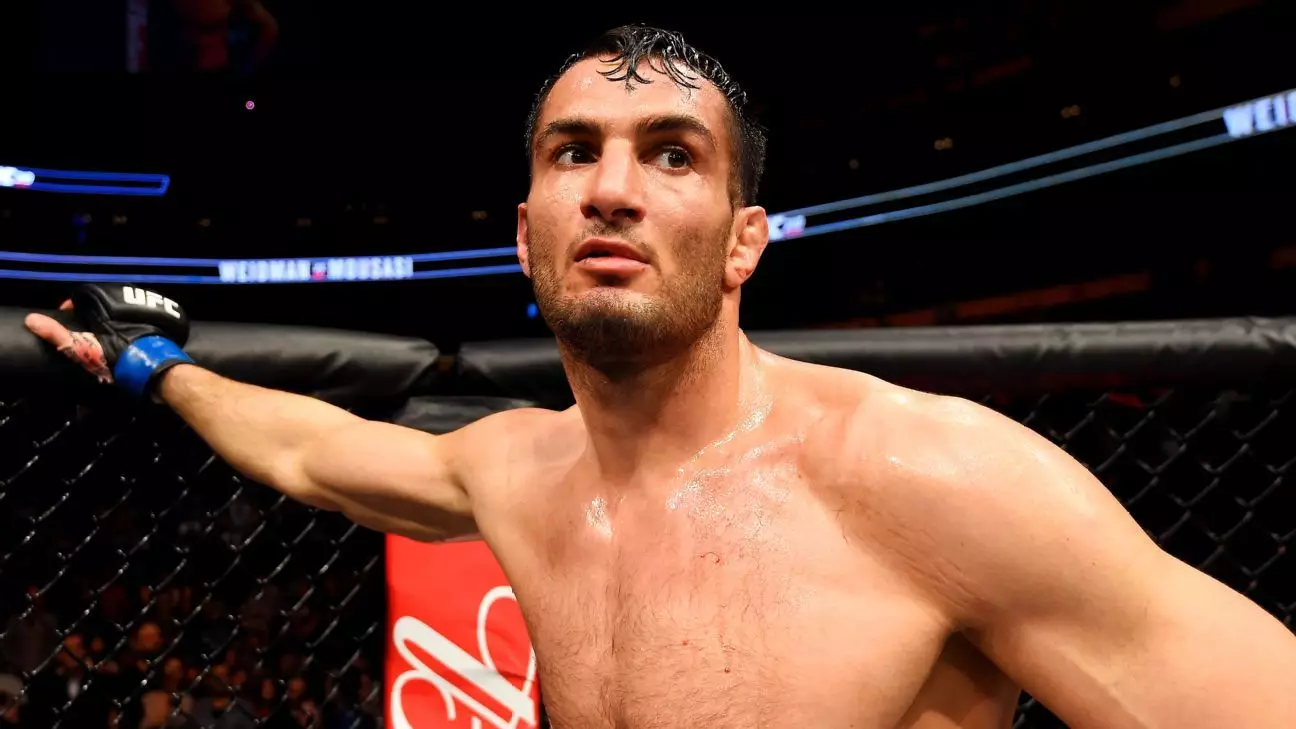Gegard Mousasi, a name synonymous with success in mixed martial arts (MMA), is making headlines not for his athletic prowess but for a compelling legal battle against his former promotion, Bellator MMA. Recently, Mousasi filed a lawsuit against Bellator and the Professional Fighters League (PFL)—which acquired Bellator in 2022—claiming that he has been effectively sidelined due to a restrictive contract. Seeking damages upwards of $15 million, this publicized suit shines a spotlight on crucial issues concerning fighter management and contractual obligations within the MMA industry.
Mousasi’s grievance revolves around allegations of breach of contract and improper classification as an independent contractor rather than a full employee from 2017 until 2024. Such classifications have substantial implications regarding fighter rights and benefits, often leaving fighters vulnerable and financially insecure. Mousasi points to a contract signed in 2020 which featured an eight-fight extension, promising him a lucrative payout of $150,000 for each bout, with escalators reportedly rising to $850,000 for later fights. However, Mousasi claims that after fulfilling his contractual obligations up to mid-2022, he faced significant hurdles securing matchups under the Bellator banner.
The predicament reached a pivotal moment when Mousasi accepted a fight against Fabian Edwards in May 2023—a contest that ended in disappointment for the decorated fighter, as he incurred injuries during the bout leading to a loss by decision. This incident not only serves as a physical manifestation of his challenges but also symbolizes the dwindling opportunities available to him as he sought increased fight activity following PFL’s acquisition of Bellator. Mousasi’s manager, Nima Safapour, documented multiple attempts to negotiate more fights, underscoring that their frustrations intensified post-acquisition, indicating a disconnect between fighter aspirations and management decisions.
The mounting strain culminated publicly in May 2023 when Mousasi openly criticized Bellator’s new ownership structure for inhibiting his career. Shortly thereafter, he was released from the promotion, raising questions about the treatment of fighters within large organizations. The timing of his release juxtaposed with the active litigation creates an intense narrative that some might argue reveals a systemic issue in MMA regarding the long-term career well-being of fighters.
Mousasi’s fight transcends the octagon as he contends not only for personal restitution but also raises pertinent issues about fighter rights and contracts within the rapidly evolving landscape of professional MMA. As the lawsuit unfolds, it may pave the way for vital discussions regarding how fighters are treated, the legitimacy of their contracts, and the balance of power within the fight promotions. This legal battle serves as a poignant reminder that the fight may not always be confined to physical contests—sometimes the real battles are fought in courtrooms with significant implications for the future of the sport. For Mousasi and his legion of fans, the hope remains that his battle can effect change, setting meaningful precedents for fighter treatment and contract fairness in the MMA world.


Leave a Reply